There’s a lot happening in your environment that can take a toll on your skin. From the harsh effects of UV rays to polluted air, your skin is constantly battling against external factors that can lead to premature aging, dryness, and irritation. Understanding how these elements impact your skin is crucial for maintaining a healthy glow and making informed choices about your skincare routine. In this post, you’ll discover five common environmental aggressors and tips on how to protect your precious skin from their damaging effects.
Table of Contents
Key Takeaways: 5 Ways the Environment Damages Your Skin
- Pollution can lead to the accumulation of harmful particles on the skin, resulting in premature aging and breakouts.
- UV radiation from the sun damages skin cells, increasing the risk of sunburn, dark spots, and skin cancer.
- Climate conditions, such as extreme heat or cold, can disrupt the skin’s moisture barrier, causing dryness and irritation.
- Indoor environments with low humidity can lead to dehydration of the skin, making it appear dull and flaky.
- Exposure to harsh chemicals commonly found in cleaning products can irritate or cause allergic reactions on the skin.
Sun Exposure: The Number One Enemy
Your skin faces many challenges from the environment, but none are quite as damaging as excessive sun exposure. The sun may feel good on your skin, but it harbors hidden dangers that can lead to serious issues over time. One of the most common ways sun exposure affects your skin is through UV radiation, which can accelerate the aging process and contribute to various skin disorders. Being wise about sun exposure is your first step in maintaining a youthful appearance and healthy skin.

UV Radiation and Premature Aging
Enemy number one at the beach, on hikes, or even from a simple stroll in the park, UV radiation wreaks havoc on your skin. This invisible force comes in two forms: UVA and UVB rays. UVA rays penetrate deeply, damaging collagen and elastin in your skin while causing those pesky wrinkles and fine lines to appear sooner than you’d like. On the other hand, UVB rays are responsible for sunburn and can increase your risk of skin cancer. As a result, both types of rays collude to accelerate premature aging of your skin.
How to Shield Your Skin from Sun Damage
Damage from sun exposure can be mitigated with a few practical steps. The most effective method to protect your skin is applying a broad-spectrum sunscreen with at least SPF 30 every day, regardless of the weather. Additionally, wearing protective clothing and sunglasses can help shield your skin from harmful rays. Don’t forget about seeking shade during peak sun hours, typically between 10 a.m. and 4 p.m. This combination will aid in keeping your skin youthful and radiant.
Hence, consistently integrating these skin protection measures into your routine is vital. Make a habit of reapplying sunscreen every two hours, especially after swimming or sweating, to maintain its effectiveness. Keep a hat handy for sunny outings and choose clothing with a UPF rating for added protection. By being proactive and prioritizing your skin’s health, you can ensure that the sun becomes an ally rather than an adversary in your quest for beautiful skin.
✨ Glow Up with the Best Skincare Essentials! ✨
Pamper your skin with top-rated skincare products designed for a healthy, radiant glow! From hydrating moisturizers to powerful serums, find everything you need for the perfect skincare routine.
👉 Shop Now: Explore Skincare 💖🌿💦
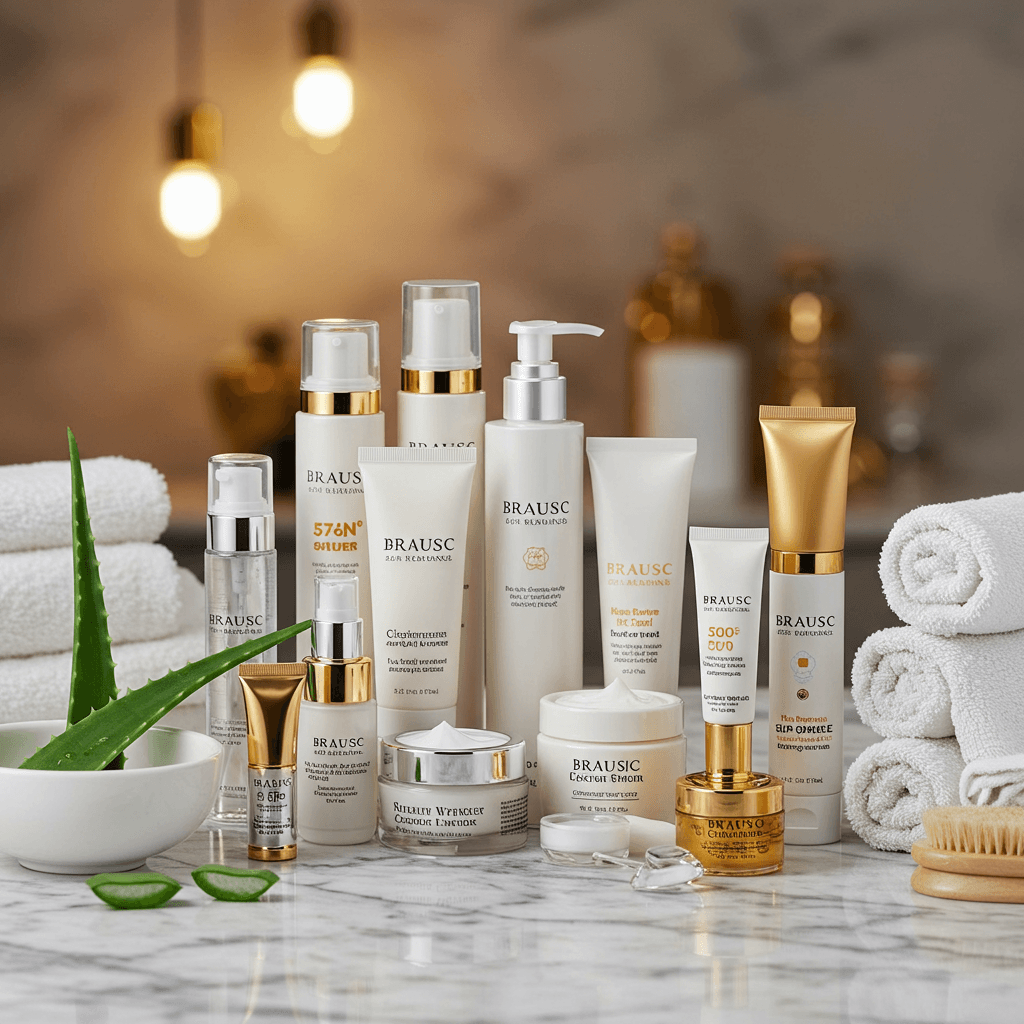
Air Pollution’s Silent Attack
The air you breathe can have a profound impact on your skin’s health, often acting as a silent attacker that compromises your skin’s barrier and accelerates aging. With rising levels of airborne toxins such as particulate matter, volatile organic compounds, and pollutants, your skin is constantly exposed to a cocktail of threats. This exposure can lead to a range of issues, from irritation and inflammation to premature wrinkles and an uneven complexion. Understanding how these pollutants interact with your skin can help you take proactive measures to protect yourself.

How Pollutants Penetrate Your Skin
Among the many ways your skin is affected by air pollution, one is through its ability to absorb harmful particles. Even if you wash your face diligently, microscopic pollutants can cling to your skin and penetrate into deeper layers, leading to an increase in oxidative stress. This in turn can spell trouble for the overall health and appearance of your skin, resulting in dullness, dryness, and a loss of vitality. The reality is that pollutants can even trigger a cascade of inflammatory responses, prompting conditions like acne or eczema.
Protection Strategies for City Dwellers
Pollution affects you more than you may realize, especially if you live in urban areas where air quality is often poor. However, there are strategies you can implement to safeguard your skin from these harmful effects. Start with a solid skincare routine that incorporates antioxidants, which can counteract the damage caused by free radicals. Using a gentle cleanser to remove pollutants and a rich moisturizer can help maintain your skin’s barrier function. Another effective measure is to apply a broad-spectrum sunscreen daily, as UV rays can exacerbate the effects of pollution.
Considering the persistent nature of air pollution, it becomes crucial to prioritize your skin’s defense. Opt for skincare products with active ingredients like vitamin C, niacinamide, and green tea extract which can be particularly effective in shielding your complexion. Additionally, keeping hydrated and consuming a diet rich in fruits and vegetables can bolster your skin from within. By being proactive, you can reclaim your radiant skin even in a polluted environment.
Climate Extremes: Too Hot, Too Cold
Unlike a gentle breeze, extreme climates can produce harsh effects on your skin. Whether you’re battling the unforgiving sun during summer or the biting chill of winter, both extremes can strip away your skin’s natural resilience. In the sweltering heat, sweat and humidity make your skin oily, which can result in acne outbreaks, while winter brings frigid air that leads to dryness and irritation. These contrasting conditions can leave your skin feeling uncomfortable and can accelerate the signs of aging, ultimately affecting your overall skin health.

Winter Dryness and Summer Humidity
Between the bone-chilling winds of winter and the scorching summer sun, your skin endures a rollercoaster of conditions. Winter dryness can lead to cracked lips, flaky patches, and even painful eczema flare-ups. On the flip side, summer humidity can cause your pores to clog, making it necessary to stay on top of your skincare routine. As your skin struggles to adapt, it becomes vital to provide it with the hydration and care it craves.
Seasonal Skincare Adjustments
Across both extremes, making simple seasonal skincare adjustments is key to achieving and maintaining healthy skin. During colder months, you might want to swap out your lightweight moisturizer for one that offers deeper hydration, and in summer, consider incorporating lighter, water-based products that won’t weigh your skin down. Be mindful of your sunscreen application in the heat, as it becomes even more important to protect your skin from harmful UV rays.
With a few strategic tweaks to your skincare routine, you can combat the effects of climate extremes on your skin more effectively. Hydrating serums can be your best friend in winter, while refreshing gel-based moisturizers are excellent for summer. Additionally, keep your lips hydrated with a quality balm during the colder months and cleanse your skin regularly to remove excess oil in the summer. By adapting your routine to match the seasons, you can ensure that your skin remains radiant, healthy, and protected year-round.
✨ Glow Up with the Best Skincare Essentials! ✨
Pamper your skin with top-rated skincare products designed for a healthy, radiant glow! From hydrating moisturizers to powerful serums, find everything you need for the perfect skincare routine.
👉 Shop Now: Explore Skincare 💖🌿💦

Indoor Environments That Harm
Keep in mind that your indoor environment can be just as hazardous to your skin as the great outdoors. The air around you may feel comfortable, but factors such as humidity and temperature can have a significant impact on your skin’s health. The type of materials and products you use at home can also contribute to various skin issues, from dryness to irritation. Understanding these aspects can help you create a healthier living space that promotes beautiful skin.

Central Heating and Air Conditioning Effects
Conditioning your home with central heating or air conditioning brings about a range of issues that can directly affect your skin. Both systems tend to create a very dry atmosphere, stripping your skin of its natural moisture and leaving it vulnerable to irritation and flaking. If you experience tightness or roughness in your skin, it might be due to the lack of humidity in your indoor space. Additionally, the fluctuation between cold and hot air can further exacerbate the problem, making your skin feel even less balanced and more reactive to environmental changes.
Creating a Skin-Friendly Home Environment
About fostering a space that supports your skin’s health, you can start by adding some specific elements to your home. Incorporating a humidifier can make a huge difference in preventing dryness by maintaining optimal moisture levels in the air, especially during colder months when heating is more likely to be used. Additionally, you can enhance your indoor environment with air-purifying plants that not only look great but also improve the air quality in your home. Limiting exposure to harsh cleaning products and opting for more natural alternatives will also help maintain your skin’s integrity.
Considering your living space and the environment you create is necessary for promoting skin vitality. By making simple adjustments such as keeping the humidity levels balanced and choosing skin-friendly products, you can safeguard your skin from the adverse effects caused by central heating and air conditioning. Your home should be a sanctuary that nurtures your skin, allowing you to enjoy a healthy and glowing complexion all year round.
Water Quality Concerns
To truly understand how the environment affects your skin, it’s necessary to consider the quality of the water you use daily. Water is a basic necessity, but the minerals and chemicals present in it can significantly impact your skin’s health. If you live in an area with hard water, for instance, you might notice an increase in dryness and irritation, as the high levels of calcium and magnesium can strip your skin of its natural moisture barrier. Additionally, municipal water supplies often contain chlorine, which is used to eliminate harmful bacteria but can also lead to redness, itching, and exacerbation of skin conditions like eczema or psoriasis.
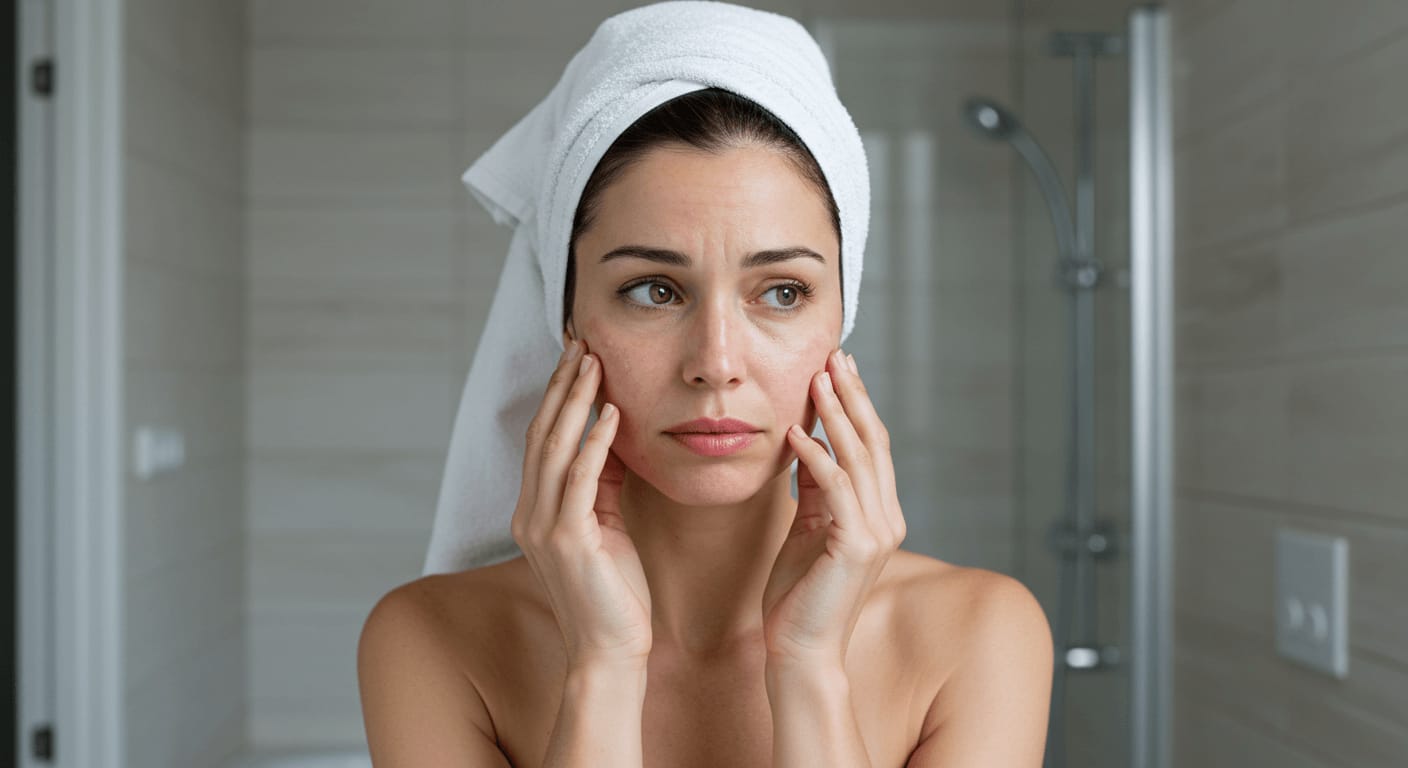
Hard Water and Chlorine Impact
Water with high mineral content, known as hard water, can lead to a range of skin problems that you might not immediately connect to your water source. Hard water creates a buildup of soap scum on your skin, leaving it feeling dry and rough. Moreover, chlorine in water can wash away natural oils, leaving your skin more prone to irritation and inflammation. If you’ve noticed persistent skin issues, there’s a likelihood that hard water and chlorine are contributing to your discomfort.
Solutions for Water-Related Skin Issues
To tackle the negative impacts of water quality on your skin, investing in a quality water filter can be a game-changer. These filters can effectively reduce both heavy minerals and chlorine, allowing you to enjoy cleaner, purer water for bathing and washing your face. Additionally, you can incorporate a hydrating moisturizer into your daily routine to replenish dry skin, especially after exposure to hard water. Using gentler, sulfate-free cleansers can also help mitigate stripping your skin of necessary oils.
Consequently, by addressing the water-related skin issues through these solutions, you may experience a noticeable improvement in your skin’s appearance and texture. Whether it’s opting for a water filter or switching up your skincare products, taking action can help restore your skin’s moisture levels and overall health. Always consider how the quality of your water plays a role in your daily skincare routine, and take those simple steps for a happier, healthier complexion!
✨ Glow Up with the Best Skincare Essentials! ✨
Pamper your skin with top-rated skincare products designed for a healthy, radiant glow! From hydrating moisturizers to powerful serums, find everything you need for the perfect skincare routine.
👉 Shop Now: Explore Skincare 💖🌿💦

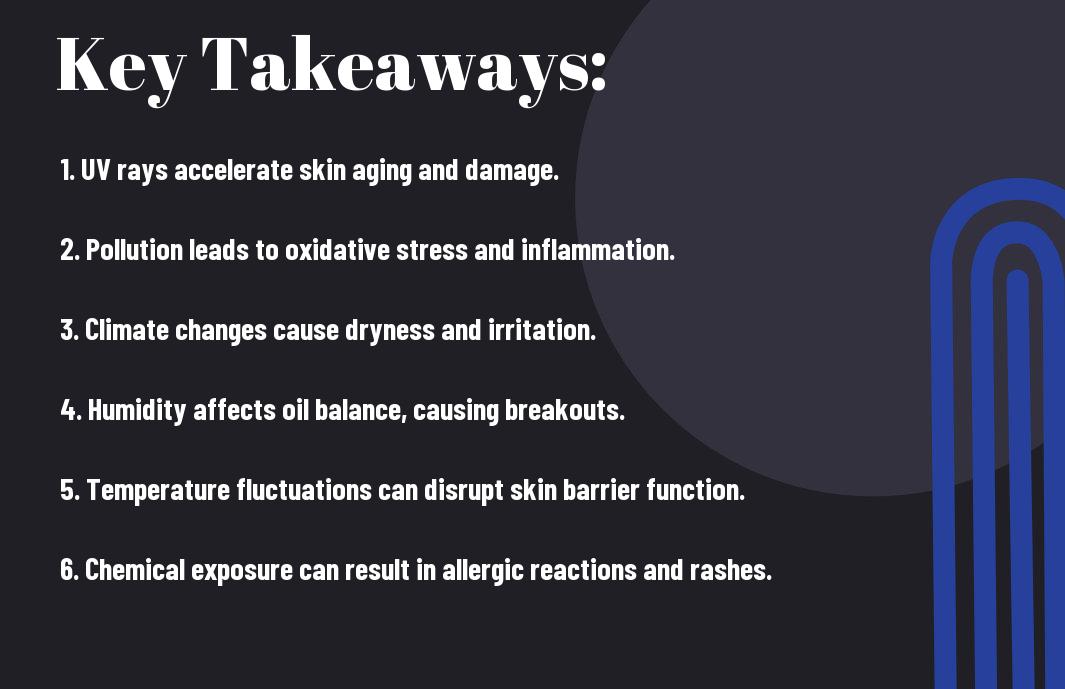
Conclusion
As a reminder, your skin is constantly exposed to various environmental factors that can take a toll on its health and appearance. From harmful UV rays to pollution, these elements can lead to premature aging, dryness, and other skin concerns. It’s necessary to be aware of how these environmental stressors impact your skin so you can take proactive steps to protect it. By establishing a consistent skincare routine and incorporating protective measures, you’ll be better equipped to defend your skin against these damaging effects.
Staying informed is key, so consider exploring resources like How the Environment Affects Your Skin to learn more about the factors at play. With the right knowledge and care, you can nurture your skin and maintain its glow despite the environmental challenges it faces. Be mindful of, taking care of your skin is an investment in your overall well-being—so give it the attention it deserves!
FAQ:
Q: How does pollution affect my skin?
A: Pollution introduces various harmful substances into the environment, including particulate matter, heavy metals, and chemicals. These pollutants can lead to inflammation, irritation, and oxidative stress on the skin. Prolonged exposure may result in premature aging, exacerbating conditions like acne and eczema, while also dulling the skin’s overall appearance.
Q: Can UV rays from the sun be damaging to my skin?
A: Yes, ultraviolet (UV) rays from the sun can cause significant damage to the skin. UVB rays are known for causing sunburn, while UVA rays penetrate deeper, leading to skin aging and an increased risk of skin cancer. Regular use of sunscreen and protective clothing is vital to minimize the harmful effects of sun exposure on the skin.
Q: Is indoor climate control harmful to my skin?
A: Indoor climate control often leads to dry air, especially during heating or cooling seasons. This can strip moisture from the skin, leading to dryness, flakiness, and irritation. It’s advisable to use humidifiers during dry months and to moisturize regularly to maintain skin hydration and health.
Q: How do harsh weather conditions impact my skin?
A: Extreme weather conditions, such as harsh winds, cold temperatures or high heat, can lead to skin irritation and damage. Cold weather can cause dryness and chapping, while heat can provoke excess oil production and acne. Adapting your skincare routine to suit seasonal changes is important for maintaining your skin’s health.
Q: What role does diet play in environmental skin damage?
A: A diet high in processed foods, sugars, and unhealthy fats can contribute to inflammation and oxidative stress in the body, which are detrimental to skin health. In contrast, a balanced diet rich in antioxidants, vitamins, and minerals can help combat these effects and support skin repair, thus minimizing the external environmental damage on your skin.






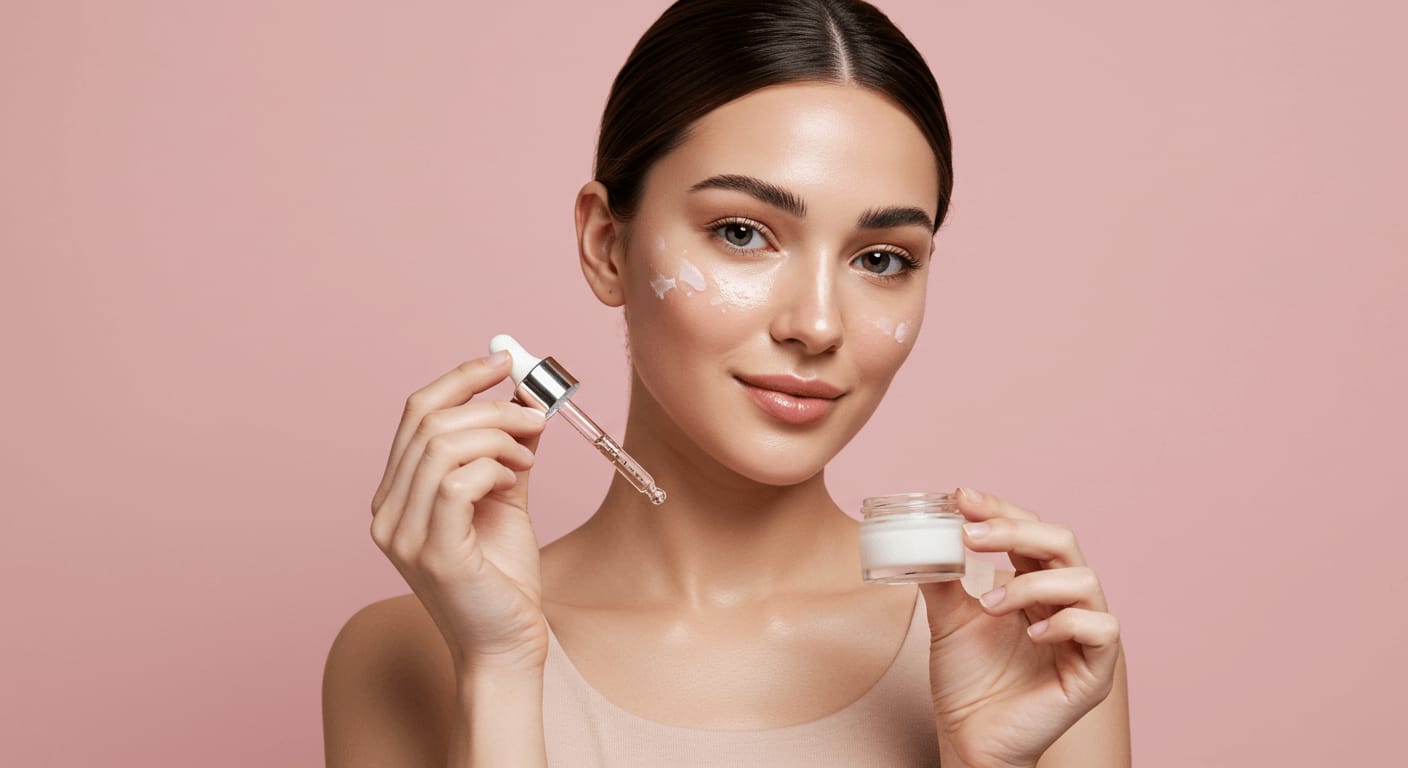









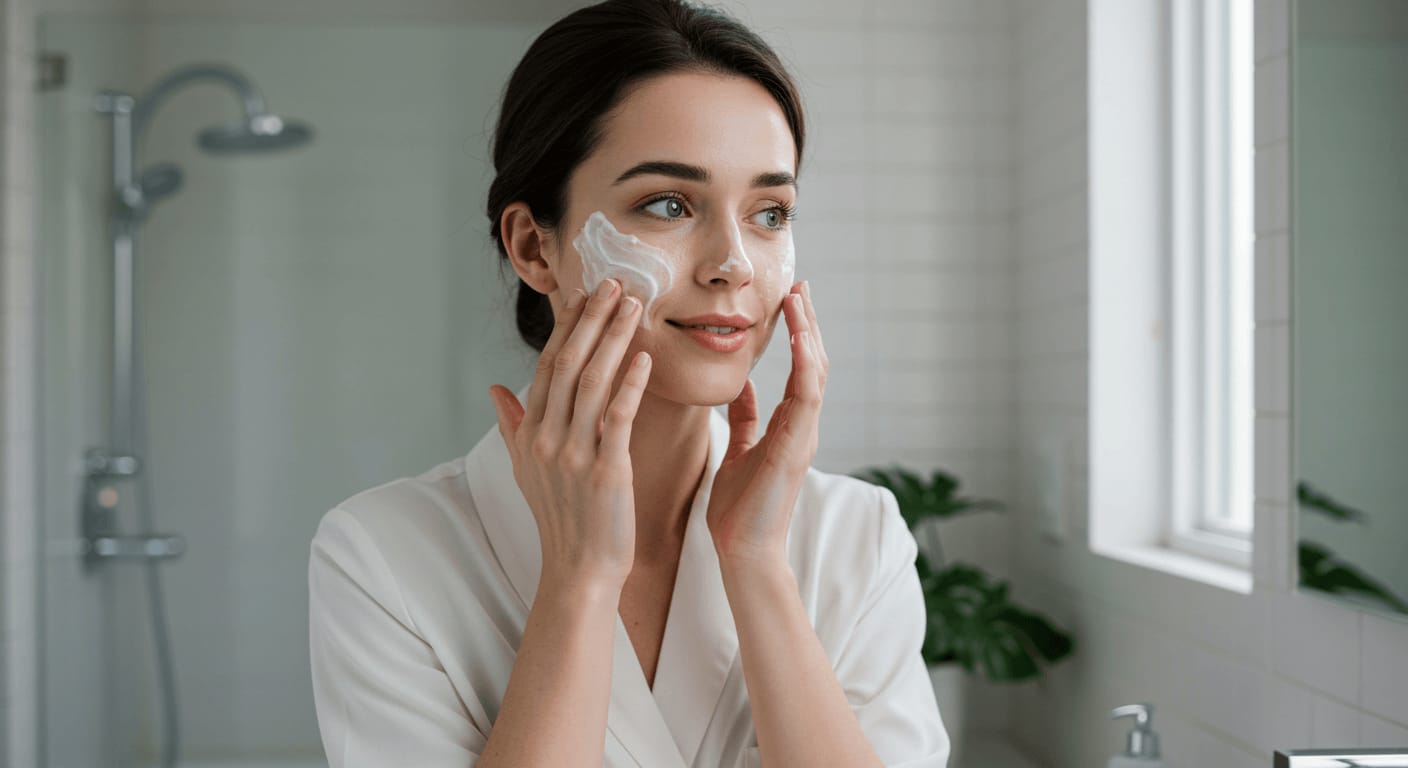







0 Comments